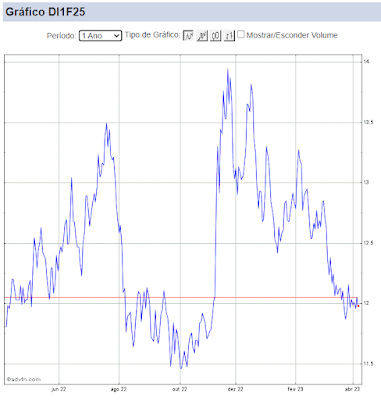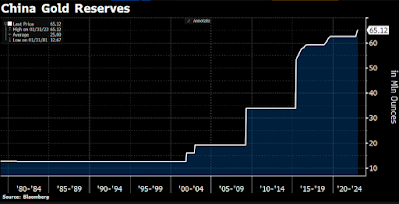China em foco
Eu acho que houve uma expressiva mudança de cenário externo na
última semana, que merece ser destacado. Além da evolução negativa dos
desdobramentos na Grécia, que já foram intensamente comentados neste fórum,
estamos observando mais uma rodada de rápida e acentuada queda no preço das
commodities, ao mesmo tempo em que o poder de fogo do governo chinês em lidar
com os problemas da economia local é colocado em xeque.
Na minha visão, os últimos eventos são baixistas para os juros
no mundo, devido a menor perspectiva de crescimento (via confiança e aperto das
condições financeiras), e perspectivas de taxas de inflação mais baixas no mundo
por tempo mais prolongado, puxados pela nova rodada de queda no preço das
commodities. No cenário atual, O Fed terá um excelente argumento para adiar o
início do processo de alta de juros, assim como o ECB terá a liberdade e o
dever de acelerar o QE (ou qualquer outro programa que vise a estabilidade
financeira) para conter a crise grega.
Acho prudente reduzir a posição comprada em dólar nos atuais
níveis, mas mantendo uma posição comprada com stop mais curto. Mantenho a estrutura de opções curta fly 3200/3300/3400 no USDBRL, assim como
a call/spread 3400/3500 mais longa. Continuo
gostando de opções baixistas na bolsa brasileira, e trabalharia com uma posição
tática aplicada em juros locais. Desenha-se um claro cenário de aversão a risco
no curto-prazo. Estruturalmente, estamos falando de menor crescimento, maior
incerteza e menor inflação no mundo, o que pressupõe juros mais baixos, maiores
prêmios de risco (bolsas em queda, spreads em alta) e dólar mais forte.
Deixo registrado abaixo um excelente comentário em torno dos
recentes eventos na China.
O estrategista da ML tem uma visão muito interessante sobre os últimos
acontecimentos na China. Segundo ele, a falta de sucesso do governo chinês em
estabilizar o mercado local de renda variável, caso confirmado nos próximos
dias, pode retirar do cenário a convicção de que o governo é capaz de promover
todo e qualquer tipo de ajuste de maneira suave e controlada. Neste caso,
deveria haver uma reprecificação dos ativos chineses (ou dependentes da demanda
da China), elevando-se consideravelmente o risco à estabilidade financeira no
país.
A dent to market's faith in government role
We believe that the biggest damage caused by
the A-share market's roller-coaster ride since the middle of last year has been
to investors' faith in the government's ability to manage asset prices (stock,
RMB, debt and even property) reasonably smoothly. The difficulty the government has faced to stabilize
the stock market has demonstrated the downside of that faith. As a result, we expect many of these assets to be re-priced
lower going forward. Also, the ripple effect from the market correction has yet
to show up - we expect slower growth, poorer corporate earnings, and a higher
risk of a financial crisis.
Many assets in China may get re-priced lower
We question the implementation of government policy in
urging people to buy stocks. Regarding the deleveraging process in the market,
in our view the government started too late & without adequate preparation
for the potential downside (we suspect because it didn't know the true extent
of shadow margin financing activities) and it resorted to administrative
control when the market turned down. So far, government measures have appeared
to us to be behind the curve. As a result, we expect
investors to assign less value to various perceived government "puts"
going forward. The fall in the stock
market could also make the government even more cautious towards QE and
potentially using the property market or debt market to hold up growth, in our
view - a burst of any of these bubbles, if fully developed, will be far more
difficult to deal with than what's happening in the stock market.
Real economy & corporate earnings will
suffer
The net result of this volatile market is a transfer
of wealth from the people on the street to the wealthy, including many major
shareholders, who cashed out (A-share fund flows analysis,
Jun 8). We expect this will likely hurt consumption
down the road. More critical is a potential distortion to credit flows due to
the impairment to financial institutions' balance sheets - as experience with
Japanese banks shows, even if they don't have to mark to market and book
losses, their lending attitude may turn more cautious. Of course, the impact of
a full-blown financial crisis in China, if it materializes, on the economy
would likely be severe. On corporate earnings,
other than the drag from slower growth, many companies may have to book
stock-market related losses over the next few quarters by our assessment.
A possible trigger for a financial crisis in
China
If the market continues to fall sharply, stock lending
related losses could run into Rmb trillions, of which, banks and brokers may
have to bear a meaningful share. These potential losses can be especially
dangerous to brokers whose capital base is less than Rmb1tr. Even more
important, the opaqueness of China's financial system and the lack of clear
definition of risk responsibility mean that contagion risk is high, similar to
the subprime crisis. We had always considered the risk of a financial crisis in
China as high (2015 Year-ahead: To focus on the three Ds, Jan 5). What has
happened in the stock market has likely increased the risks considerably and
also brought forward the timeline by our assessment - the leverage is much higher
now and economic growth rate, potentially lower.


Comentários
Postar um comentário